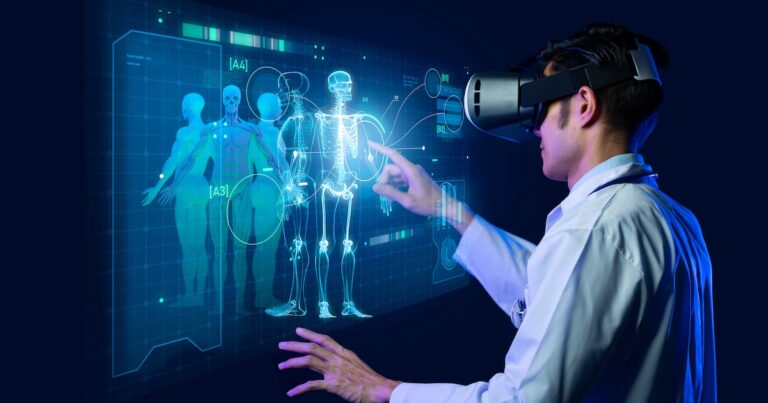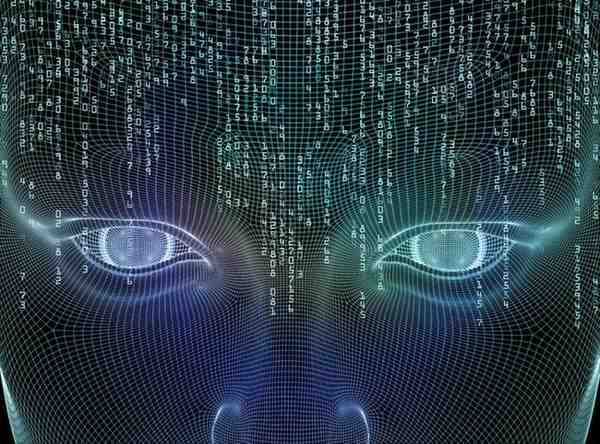AI’s Transformative Role in Healthcare
By admin | Nov 04, 2024 | 4 min read

The integration of artificial intelligence (AI) in healthcare is reshaping the landscape of modern medicine, setting the stage for more precise diagnostics, personalized treatments, and streamlined administrative processes. By enabling quick analysis of massive clinical datasets, AI is helping healthcare professionals identify disease patterns and outcomes that traditional methods might overlook. From scanning radiology images for early disease detection to predicting patient outcomes based on electronic health records, AI’s applications in healthcare are extensive. Its potential to revolutionize patient care, reduce operational costs, and improve efficiency makes it an invaluable asset for medical institutions worldwide.
Early AI Pioneers and Rapid Advancements
The journey of AI in healthcare began with IBM’s Watson, which used natural language processing to interpret and answer questions, laying the foundation for AI’s role in healthcare decision-making. Since IBM’s introduction of Watson for Healthcare in 2011, major tech players like Apple, Microsoft, and Amazon have followed suit, investing heavily in AI to address healthcare’s unique challenges. Today, AI-driven innovations go beyond just data processing—they are empowering healthcare providers to make more informed decisions, tailor treatments, and offer high-quality patient care.
AI Technologies Driving Change in Healthcare
1. Machine Learning:
Machine learning has transformed healthcare by processing vast clinical datasets to detect patterns and predict health outcomes with unprecedented accuracy. By analyzing patient records, imaging, and lab results, machine learning models enhance diagnostics and support the development of personalized therapies. For instance, precision medicine, which tailors treatment plans based on individual patient data, relies on machine learning algorithms to recommend the most effective interventions. Deep learning, a subset of machine learning, supports tasks like voice recognition for clinical notes, a significant aid in streamlining medical documentation.
2. Natural Language Processing (NLP):
NLP is revolutionizing how healthcare providers interpret clinical data and engage with patient records. It enables computers to understand and process human language, making it possible to extract insights from complex medical documents quickly. NLP helps diagnose illnesses, identify potential treatment plans, and assess patient health risks based on historical data. For healthcare professionals managing large volumes of patient information, NLP provides powerful, efficient tools for both diagnostics and patient monitoring.
3. Rule-based Expert Systems:
Initially prevalent in the 1980s, rule-based systems use an “if-then” logic to support clinical decision-making. While still beneficial for certain routine medical processes, these systems face challenges as rules become more complex and potentially conflicting. Modern applications integrate these expert systems with electronic health records (EHRs) to assist in decision support, but their reliance on static rules limits adaptability compared to AI’s machine learning capabilities.
Enhancing Diagnosis and Treatment
AI’s role in diagnostics and treatment has steadily grown, especially with the development of algorithm-driven systems that offer diagnostic insights, assist in crafting treatment plans, and support clinical trials. Although early systems struggled with clinical acceptance, improvements in AI accuracy and integration have increased their utility in the medical field. Leading EHR software providers are gradually incorporating AI to provide healthcare analytics and support decision-making. These innovations are transforming patient care by enabling more accurate diagnoses and efficient workflows.
AI’s Role in Healthcare Administration
Beyond patient care, AI is redefining healthcare administration by automating repetitive tasks like data entry, claims processing, and scheduling. This automation not only reduces administrative costs but also minimizes errors, providing healthcare providers more time to focus on patient care. AI-powered systems can manage large amounts of patient data more efficiently, helping medical professionals deliver faster, more personalized care. By streamlining routine tasks, AI reduces operational burdens and allows clinicians to prioritize direct patient interactions.
Challenges of Implementing AI in Healthcare
Despite its potential, AI faces hurdles in healthcare, particularly regarding data privacy, patient safety, and system integration. Protecting patient data from breaches and misuse is essential as AI systems handle large volumes of sensitive information. Ensuring that AI algorithms are accurate and align with clinical standards is also crucial, as inaccuracies can compromise patient safety. Additionally, integrating AI with existing IT infrastructure poses challenges for many healthcare providers. For AI adoption to be successful, transparency in AI decision-making and strong security protocols are essential.
Why AI is Becoming Mainstream in Healthcare
AI’s growing role in healthcare is a result of technological advancements, data availability, and a rising demand for more efficient healthcare systems. Improved computational power and access to Big Data have enabled the development of sophisticated AI models that address key challenges in healthcare. For instance, AI’s ability to enhance diagnostic accuracy, personalize treatment, and improve administrative efficiency demonstrates its significant value. Statista estimates that the AI healthcare market will increase from $11 billion in 2021 to $187 billion by 2030, underscoring AI’s transformative impact on the industry.
A Future Fueled by AI in Healthcare
AI’s applications in healthcare are broadening every year, from helping medical providers make data-driven decisions to improving patient engagement and care outcomes. AI assists with predictive analytics, helping clinicians anticipate health risks and proactively manage patient care. The advent of AI in healthcare symbolizes a major shift, promising a future where medical care is more efficient, cost-effective, and patient-centric. As AI technology advances, its role in healthcare will continue to grow, revolutionizing how we approach medicine and patient care.
Conclusion
AI is reshaping healthcare by improving patient outcomes, reducing operational costs, and enhancing clinical decision-making. As medical institutions navigate AI’s challenges and benefits, the promise of an AI-integrated healthcare system becomes more apparent. With its ability to manage complex data and optimize various aspects of patient care, AI is setting a new standard for modern medicine. This innovation-driven era signals a future where AI will play a central role in advancing healthcare for providers and patients alike.
Comments
Please log in to leave a comment.




No comments yet. Be the first to comment!